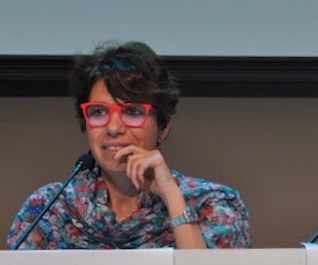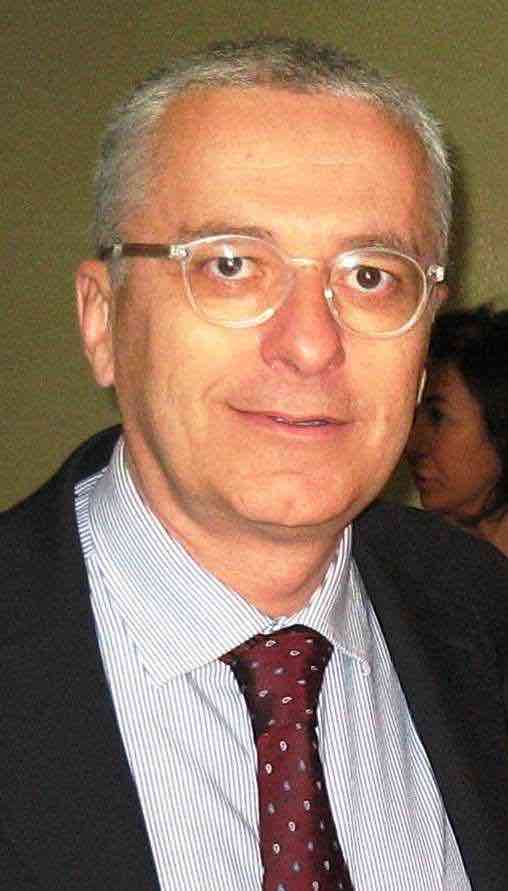Studying at the University of Verona
Here you can find information on the organisational aspects of the Programme, lecture timetables, learning activities and useful contact details for your time at the University, from enrolment to graduation.
Academic calendar
The academic calendar shows the deadlines and scheduled events that are relevant to students, teaching and technical-administrative staff of the University. Public holidays and University closures are also indicated. The academic year normally begins on 1 October each year and ends on 30 September of the following year.
Course calendar
The Academic Calendar sets out the degree programme lecture and exam timetables, as well as the relevant university closure dates..
| Period | From | To |
|---|---|---|
| LMSIO VR - 2° ANNO 1° SEM. | Oct 3, 2019 | Feb 8, 2020 |
| LMSIO VR - 1° ANNO 1° SEM. | Nov 14, 2019 | Mar 14, 2020 |
| LMSIO VR - 2° ANNO 2° SEM. | Apr 16, 2020 | Jun 27, 2020 |
| LMSIO VR - 1° ANNO 2° SEM. | Apr 16, 2020 | Jun 27, 2020 |
| Session | From | To |
|---|---|---|
| Sessione invernale 2° anno Lm Sio Vr | Mar 2, 2020 | Mar 31, 2020 |
| Sessione invernale 1° anno Lm Sio Vr | Mar 16, 2020 | Apr 9, 2020 |
| Sessione estiva Lm Sio Vr | Jul 1, 2020 | Jul 31, 2020 |
| Sessione autunnale Lm Sio Vr | Sep 1, 2020 | Sep 30, 2020 |
| Session | From | To |
|---|---|---|
| Prima sessione Lm Sio Vr | Jun 15, 2020 | Sep 15, 2020 |
| Seconda sessione Lm Sio Vr | Nov 16, 2020 | Jan 15, 2021 |
| Terza sessione Lm Sio Vr | Mar 1, 2021 | Apr 30, 2021 |
| Period | From | To |
|---|---|---|
| FESTIVITA' OGNISSANTI | Nov 1, 2019 | Nov 1, 2019 |
| FESTIVITA' IMMACOLATA CONCEZIONE | Dec 8, 2019 | Dec 8, 2019 |
| Vacanze di Natale | Dec 23, 2019 | Jan 6, 2020 |
| VACANZE DI PASQUA | Apr 10, 2020 | Apr 15, 2020 |
| Festa della Liberazione | Apr 25, 2020 | Apr 25, 2020 |
| FESTIVITA' DEL LAVORO | May 1, 2020 | May 1, 2020 |
| FESTIVITA' DEL SANTO PATRONO SAN ZENO | May 21, 2020 | May 21, 2020 |
| Festa della Repubblica | Jun 2, 2020 | Jun 2, 2020 |
| Vacanze estive | Aug 10, 2020 | Aug 23, 2020 |
| Description | Period | From | To |
|---|---|---|---|
| Stage 2° anno Lm Sio Vr | Stage 2° anno Lm Sio Vr | Jul 1, 2020 | Nov 27, 2020 |
Exam calendar
Exam dates and rounds are managed by the relevant Medicine Teaching and Student Services Unit.
To view all the exam sessions available, please use the Exam dashboard on ESSE3.
If you forgot your login details or have problems logging in, please contact the relevant IT HelpDesk, or check the login details recovery web page.
Should you have any doubts or questions, please check the Enrollment FAQs
Academic staff
 mcarfagna@ausl-cesena.emr.it
mcarfagna@ausl-cesena.emr.it
 trap71@hotmail.com
trap71@hotmail.com
 tullio.ferrari@univr.it
tullio.ferrari@univr.it
 alberto.mattei@univr.it
alberto.mattei@univr.it
 alvisa.palese@dstb.uniud.it
alvisa.palese@dstb.uniud.it
 loredana.pancheri@univr.it
loredana.pancheri@univr.it
 sara.pilotto@univr.it
sara.pilotto@univr.it
 stefania.pretto@univr.it
stefania.pretto@univr.it
 danielesalmaso@fondazionezancan.it
danielesalmaso@fondazionezancan.it
 fvallicella@vodafone.it
fvallicella@vodafone.it
 cinzia.vivori@apss.tn.it
cinzia.vivori@apss.tn.it
Study Plan
The Study Plan includes all modules, teaching and learning activities that each student will need to undertake during their time at the University.
Please select your Study Plan based on your enrollment year.
1° Year
| Modules | Credits | TAF | SSD |
|---|
2° Year activated in the A.Y. 2020/2021
| Modules | Credits | TAF | SSD |
|---|
| Modules | Credits | TAF | SSD |
|---|
| Modules | Credits | TAF | SSD |
|---|
Legend | Type of training activity (TTA)
TAF (Type of Educational Activity) All courses and activities are classified into different types of educational activities, indicated by a letter.
Research methodology applied to health settings - EPISTEMOLOGIA DELLA RICERCA QUALITATIVA (2020/2021)
Teaching code
4S007254
Teacher
Credits
2
Language
Italian
Scientific Disciplinary Sector (SSD)
M-PED/01 - PEDAGOGY, THEORIES OF EDUCATION AND SOCIAL EDUCATION
Period
LMSIO VR - 2° ANNO 1° SEM. dal Oct 8, 2020 al Feb 13, 2021.
To show the organization of the course that includes this module, follow this link: Course organization
Learning outcomes
GENERAL EDUCATIVE AIM
The course “Epistemoology of the qualitative research” is aimed at presenting and making health-care practitioners and supervisors learn the necessary knowledge and competences to be aware of what is a research and to be able to project and conduct a qualitative research.
SPECIFIC EDUCATIONAL AIMS
Knowledge and comprehension skills
At the end of the course the students should be able to:
• Know the essence of the epistemology of the qualitative research in health-care contexts;
• Know the specificity of the qualitative research in its paradigmatic, epistemological, philosophical and methodological aspects.
Knowledge and applied comprehension skills
At the end of the course the students should be able to:
• Project experiences of qualitative research contextualized in health care contexts;
Independent judgement (Autonomous assessments)
At the end of the course the students should have learned:
• The capacity to analyze qualitative research experiences in health care contexts, to identify its constitutive elements, strong points and criticalities in an improving perspective;
• The awareness of the ethical valence of a research action, i.e. assuming the responsibility of their epistemic choices.
Communicative skills
At the end of the course the students should be able to:
• Use a correct and specific language to describe an qualitative research;
• Communicate to the colleagues a specific choice for an qualitative research project and dialogue constructively about it;
• Communicate in social and public contexts the importance and quality of his/her own choices related to the approach of qualitative research;
• Document and present his/her inquiries, both in scientific and non-scientific contexts.
Learning skills
At the end of the course the students should be able to:
• Analyze the different modalities of qualitative research in order to come across the requirements of the different contexts;
• Collect the required sources to develop efficient qualitative research projects.
Program
PROGRAM
The course intends to argue that a practitioner, who doesn't live his/her own profession as a mere executive or technician role, should characterize his/her actions with the capacity to deeply read reality in order to propose changes. In other words the course will present the idea that research is a fundamental dimension for health care professions, since it is considered to be a style and a method able to offer a profound vision of the context and of the real needs of the people living and acting in it (patients, health care practitioners, relatives), and also of the entire environment or institution.
Different approaches to qualitative research will be presented, together with their related epistemological frameworks, philosophies, methods and instruments. In particular we will study in depth the approach characterized by the capacity:
• to enter people’s experience (phenomenological approach),
• to read the meanings that everybody elaborates personally (hermeneutical approach),
• to be within the web of real relationships and settings (ecological and naturalistic approach),
• to transform and improve the system in which he/she works (transformative research).
The course, alternating frontal lectures and laboratorial exercises, will deal with these arguments:
• theories of research in health care;
• qualitative methods;
• ecological paradigm, naturalistic epistemology and phenomenological-hermeneutical method;
• practices of research: instruments for data collection, interpretation, sharing and transformation.
PRE-REQUISITES
Students will be requested to have the following pre-requisite:
• a bascial knowledge of paradigms and methods of the research in health care contexts.
DIDACTIC METHODS
During the course the students will be involved in laboratorial activities, so that they will be allowed to practice planning qualitative research experiences. This will allow them to face, in a direct or simulated way, all the epistemological, planning and ethical aspects of the qualitative research.
Also case studies (taken from the professional context) will be presented to students. Moreover, students will be required to work in team in order to simulate the planning of a qualitative research.
| Author | Title | Publishing house | Year | ISBN | Notes |
|---|---|---|---|---|---|
| Luigina Mortari e Luisa Saiani | Gesti e Pensieri di Cura | McGraw-Hill | 2013 | ||
| Luigina Mortari e Lucia Zannini | La ricerca qualitativa in ambito sanitario | Carrocci editore | 2017 |
Examination Methods
EVALUATION AND ASSESSMENT Written exam, with open questions. The discussion will test the personal study of the textbook and the student’s comprehension of the topics. Moreover the student will be asked to elaborate a personal research hypothesis, as a demonstration of his/her own personal reflection and project ability. Students should prove that they: • Have understood the relevant elements characterizing the qualitative research; • Are able to present the specificity of qualitative research, with precision and clarity; • Are able to critically analyze case studies and experiences. Tests will be evaluated taking into consideration the correctness of contents, the capacity to communicate in an efficient way and the quality of written composition. Every question will be scored with points, whose total sum will compose the grade expressed in thirtieths. TEXTBOOK: The Italian textbook is also published in an English version: • Mortari, L., & Saiani, L. (Eds). Gestures and thoughts of caring. New York-Boston: McGraw-Hill Education, 2014, pp. 200. • Mortari L., e Zannini, L. (2018), La ricerca qualitativa in ambito sanitario. Roma: Carocci. Futher references: • Mortari, L. (2007). The ethic of delicacy in phenomenological research. International Journal of Qualitative Studies on Health and Well-Being, 2007, 3(1), pp. 3-17. • Mortari, L., & Silva, R. (2018). Words Faithful to the Phenomenon: A Discursive Analysis Method to Investigate Decision-Making Processes in the Intensive Care Unit. International Journal of Qualitative Methods, 17(1),
Career prospects
Module/Programme news
News for students
There you will find information, resources and services useful during your time at the University (Student’s exam record, your study plan on ESSE3, Distance Learning courses, university email account, office forms, administrative procedures, etc.). You can log into MyUnivr with your GIA login details: only in this way will you be able to receive notification of all the notices from your teachers and your secretariat via email and soon also via the Univr app.
Gestione carriere
Orario lezioni
Ultimo aggiornamento orario lezioni: 16/04/2024
Documents
| Title | Info File |
|---|---|
|
|
pdf, it, 480 KB, 23/06/21 |
|
|
octet-stream, it, 1293 KB, 23/06/21 |
|
|
pdf, it, 124 KB, 23/06/21 |
|
|
pdf, it, 338 KB, 16/04/24 |
|
|
pdf, it, 410 KB, 16/04/24 |
Stage
Documents
| Title | Info File |
|---|---|
|
|
pdf, it, 543 KB, 05/10/22 |
|
|
msword, it, 198 KB, 23/06/21 |
|
|
octet-stream, it, 1297 KB, 05/10/22 |
|
|
octet-stream, it, 1297 KB, 05/10/22 |
|
|
octet-stream, it, 1324 KB, 05/10/22 |
|
|
octet-stream, it, 1323 KB, 05/10/22 |
|
|
msword, it, 44 KB, 23/06/21 |
|
|
msword, it, 104 KB, 23/06/21 |
|
|
pdf, it, 111 KB, 10/01/24 |
|
|
pdf, it, 110 KB, 14/02/24 |
Student login and resources
Appelli d'esame
Documents
| Title | Info File |
|---|---|
|
|
pdf, it, 121 KB, 02/04/24 |
|
|
pdf, it, 154 KB, 16/03/23 |
|
|
pdf, it, 185 KB, 20/01/23 |
|
|
octet-stream, it, 1299 KB, 31/01/23 |

 +039 0458027288
+039 0458027288


















